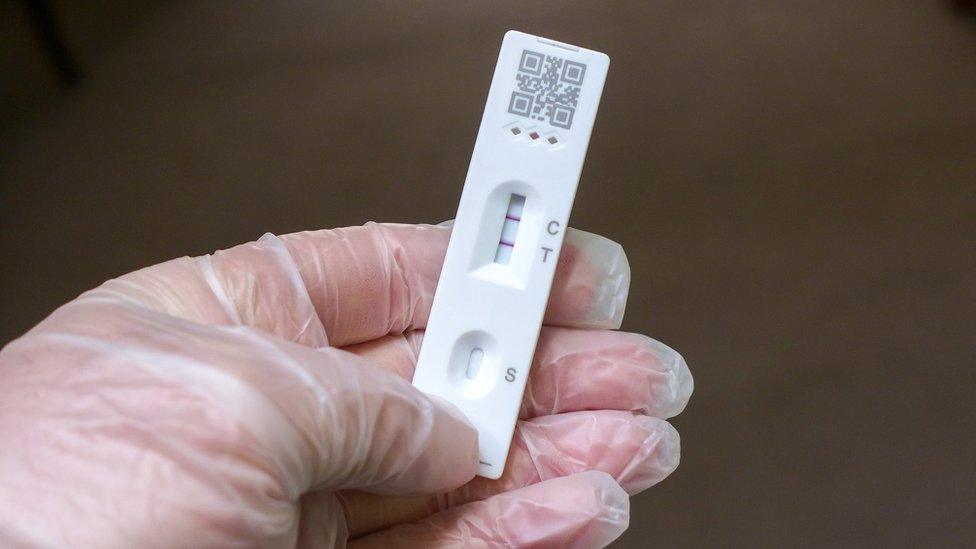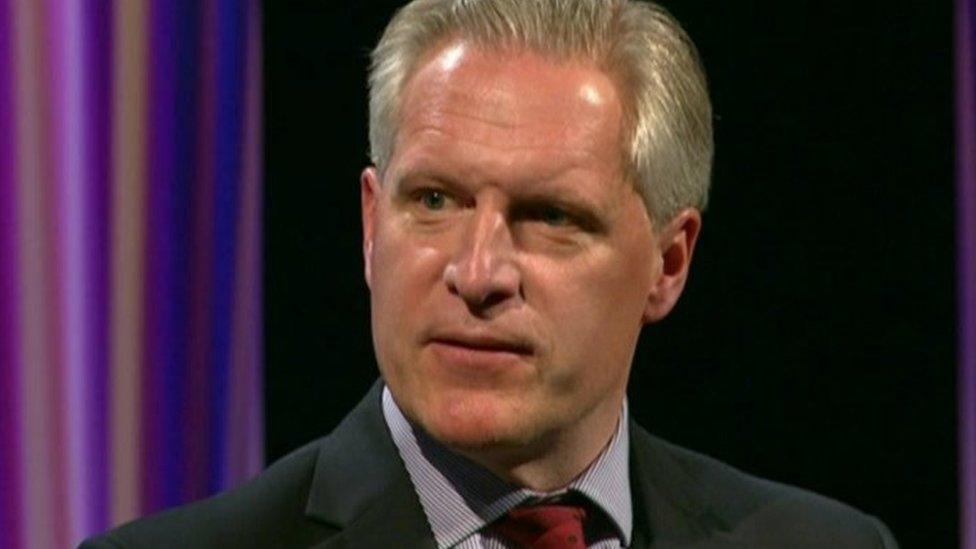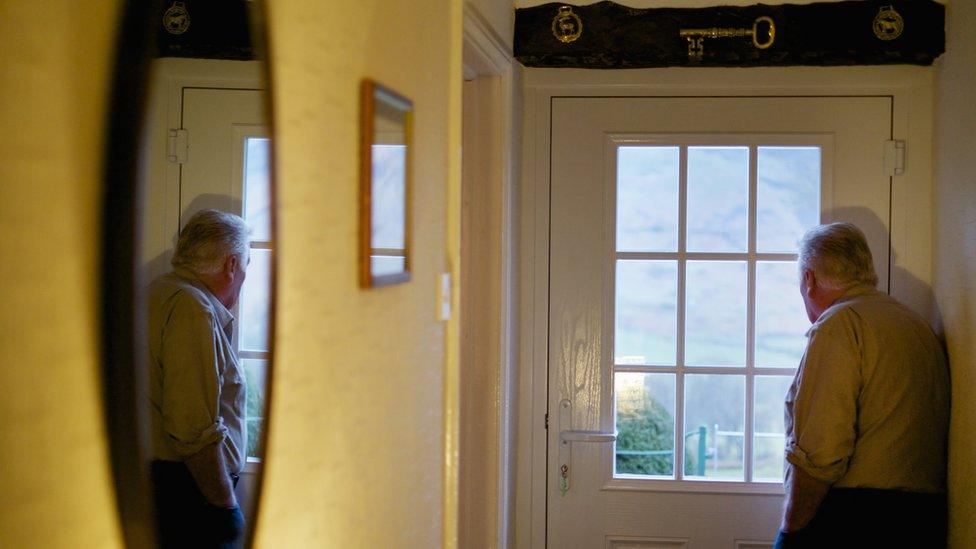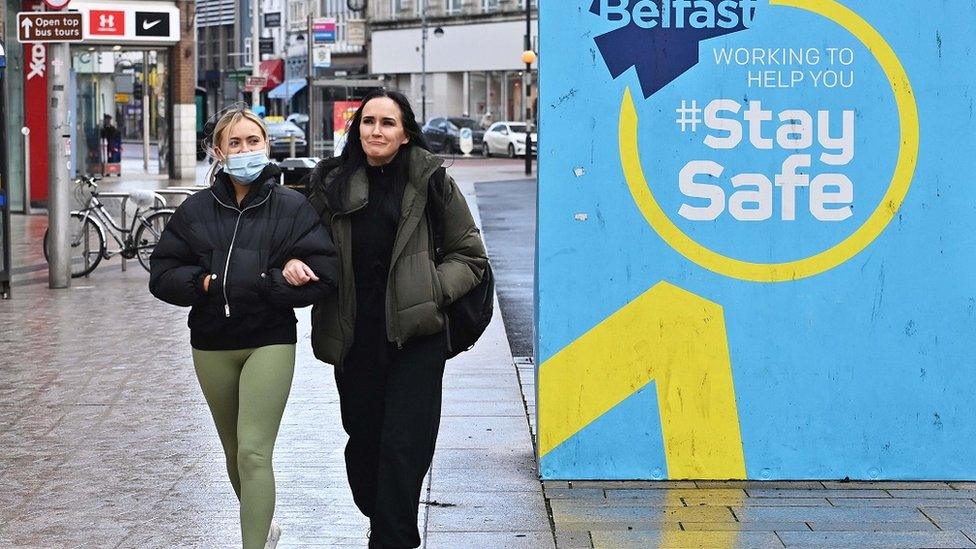Covid-19: Leading GP surprised by self-isolation revelation
- Published

In England, people have a legal duty to self-isolate if they test positive for Covid, but in NI it is "very strong guidance" rather than law
It came as a major surprise that self-isolation after testing positive was never a legal requirement in Northern Ireland, just very strong guidance, the chair of NI's GP committee has said.
On Tuesday, BBC News NI revealed that self-isolation after testing positive for Covid has always fallen under guidance and not regulations.
Dr Alan Stout said that was "contrary to what most people believed to be the case over the course of the pandemic".
In England positive cases must isolate.
There, self-isolation is a legal requirement after receiving a positive test result, external and fines can be issued to those who do not follow the law.
What were the public told about self-isolation?
According to NI Direct, the official government website for Northern Ireland citizens, people who have symptoms or have been diagnosed with Covid-19 "must self-isolate", external.
However the warning is much stronger from NHS England which says it is a "legal" requirement to self-isolate if you are told to by NHS Test and Trace, external.
"You could be fined if you do not self-isolate," the NHS warning adds.
Dr Stout said he raised the question among colleagues on the Northern Ireland GP council and "not one knew that it wasn't a legal requirement".
He added he thought it was a good thing that most had thought it was a legal requirement and had acted responsibly.

Dr Alan Stout is the chair of the Northern Ireland general practitioners' committee
Martin McKee, a professor of European Public Health at the London School of Hygiene and Tropical Medicine, said it was "not satisfactory" when people were unclear as to whether something was legal or not, especially in a pandemic.
He said what happened raised a wider point around the clarity of decision making throughout the pandemic and how that message was relayed to the public.
"Having a legal mandate strengthens everyone's position if people, or even a few people, are trying to persuade them to act otherwise, but as the majority did comply, it probably didn't make that much of a difference," he said.
'Wee bit more quickly'
Linda Bauld who is a professor of public health at the University of Edinburgh, said it was good practice for the public to know whether something was either guidance or actually built into law.
However she added that what has happened in Northern Ireland was interesting as people had just presumed it was a legal requirement and had acted accordingly.
"It's probably not a bad place that Northern Ireland has ended up in if people were following it anyway - even if it's now emerged it wasn't ever a legal requirement," the professor said.

Many people in Northern Ireland believed they could not legally leave home if they tested positive for Covid
On Monday, all of Northern Ireland's remaining Covid-19 restrictions became no longer legally binding.
Instead the measures have been issued as guidance to the public.
It is the first of the four nations to remove all legislation at once, something Prof Bauld described as a "surprise".
"At the moment it is fascinating to see the different approaches in different parts of the UK - we can see each of the four nations taking a different approach," she said.
"I suspect we will all end up in a similar place, it's just that Northern Ireland has done things all at once, a wee bit more quickly than some other places."
Related topics
- Published16 February 2022

- Published15 February 2022
